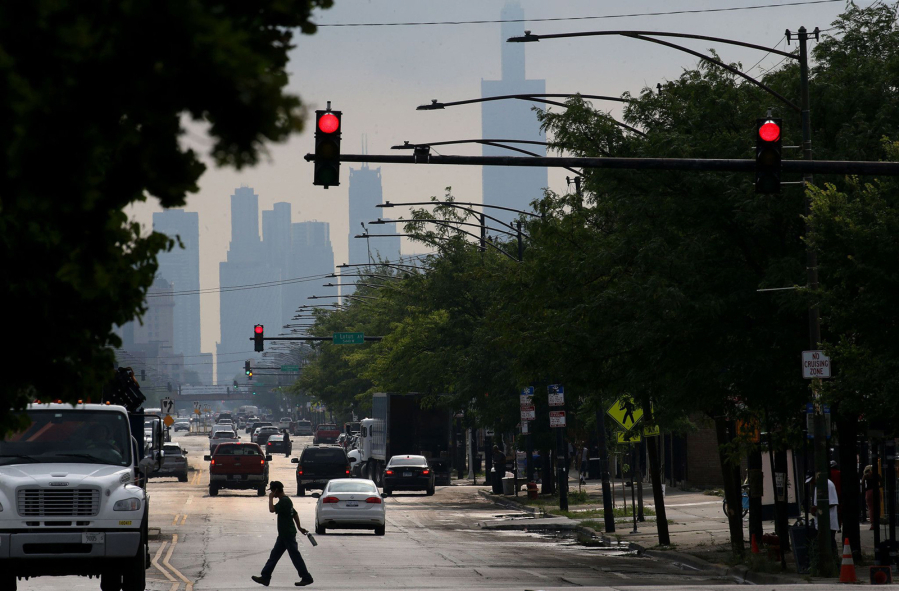CHICAGO — The pandemic has urged some city dwellers to leave urbanity in favor of locales with more space, including rural areas.
But a new University of Chicago study may have folks rethinking making moves. Marc Berman, associate professor in the department of psychology, co-authored the work that cites cities predict lower depression rates among people, due to the social, socioeconomic and infrastructure networks that one finds in metropolises. Those same networks can lead to rapid increases in social interaction and higher rates of innovation and wealth production.
“With a lot of earlier works, there was this kind of romantic notion that more rural and less populated areas were happier and mentally healthy. And this study really counters that. Actually, when we look at the data, we don’t see that,” Berman said.
Berman and his research team used pre-pandemic data sets derived from the U.S. Census and the Centers for Disease Control and Prevention in approximately 80 U.S. cities that range in population from 40,000 to 10 million to come up with the study’s results. The largest data set was a Twitter one from 2019 that used 80 tweets per user as a depression inventory, to quantify how depressed a Twitter user was.
“We analyzed four independent data sets, which allow for consistent assessments of cases of depression across different urban areas in the United States,” Berman said. “Everybody thinks that bigger cities have more crime, more stress, maybe people are more cold or callous and that would seem to suggest that you get more mental illness or more depression as cities get bigger and we found just the opposite.”
Much has been written about the environment and one’s health, be it mental or physical. A 2019 NYU School of Medicine analysis found the average life expectancy is as wide as 30 years from one Chicago neighborhood to another — the largest gap in the country. And other studies show the correlation of green spaces with mental health, in urban areas. Berman, an expert on the intersection of psychology and environmental factors, says the U. of C. research is one more pebble in his ongoing work that looks at the impact the physical and social environment has on brains and behavior.
“In the U.S., people are so individualistic,” Berman said. “If you work hard, you can be successful. People look at people who are successful and think they’re just not working hard enough, instead of recognizing that so much of it is out of our control based on environment. That’s what we’re really pushing in our lab — that it’s not all about the individual.”
With the pandemic highlighting lots of warts in society, Berman is hoping public policymakers are working on making cities more resilient — while keeping people’s mental health in mind. For him, that translates to making more green spaces in cities and making them necessities instead of amenities. It also means altering and improving existing environments to make them safer and easier to move around. He’s hopeful about the Biden infrastructure plan making that happen.
“If there are more trees in the neighborhood, there’s less crime,” Berman said. “If people visit parks outside their neighborhood, there’s also less crime in their neighborhood, and that’s about mobility and access. It’s about making it easy. And if you can make it easily accessible, then you’re going to see the benefits. If you can get people to interact with each other more, you’re gonna get more innovation and you’re gonna get less depression.”



